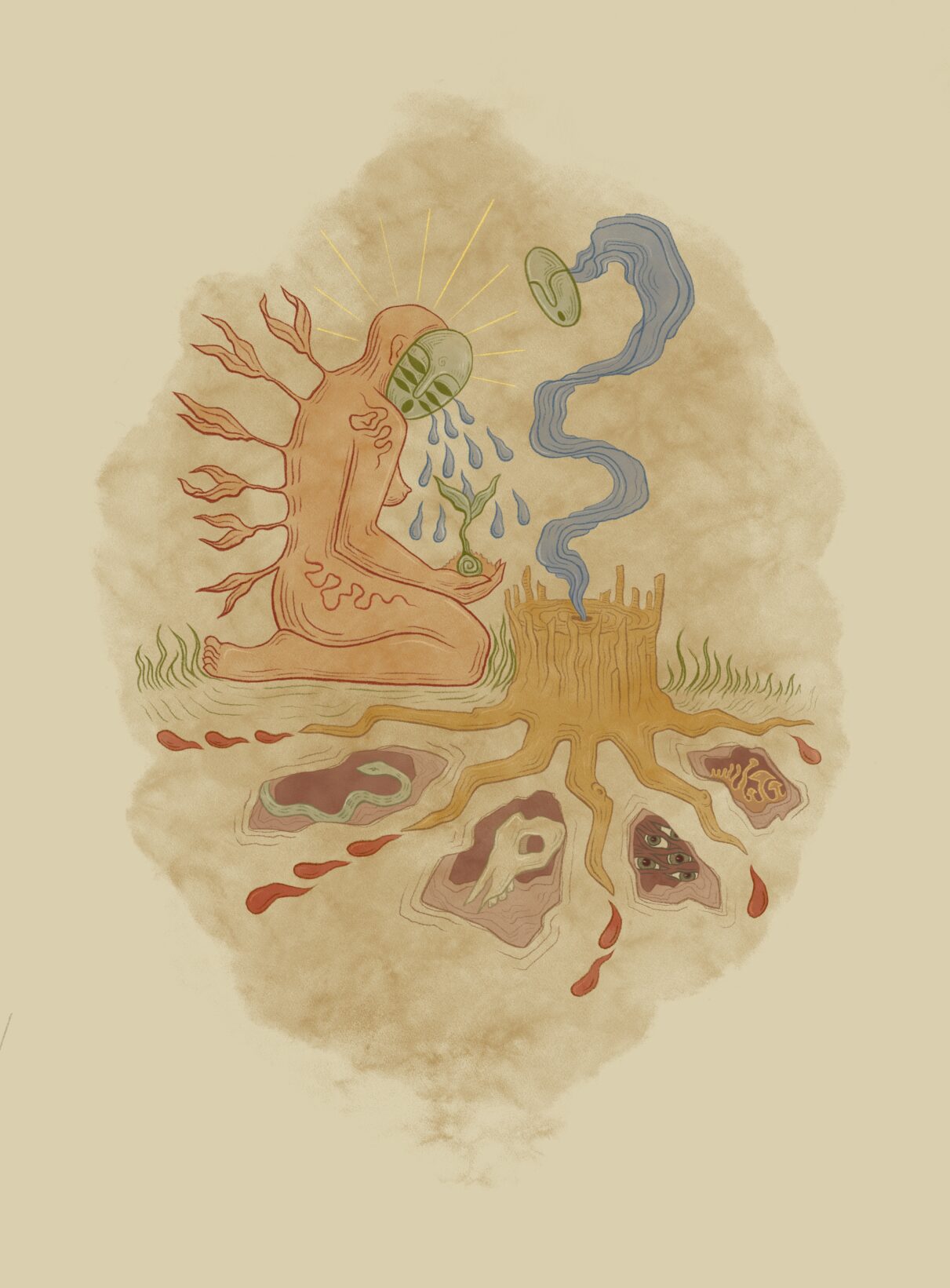"Yet the dominant culture imagines this way of living—capitalism, modernity, industrial society, however we might think about it—not only as necessary, but as stable. This was presumably an illusion shared by the Indus Valley civilisation, the Mesopotamians, the ancient Egyptians, the Olmec and Maya civilisations of Mesoamerica—there’s no shortage of once-prolific societies which are now almost forgotten. Sooner or later, they all transformed, not in some cataclysmic mass human-extinction-event, but through a fundamental shift into new social organisms."

















